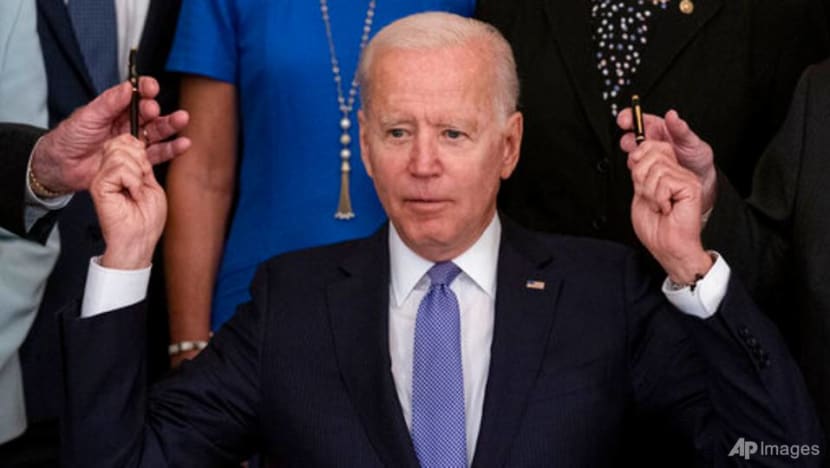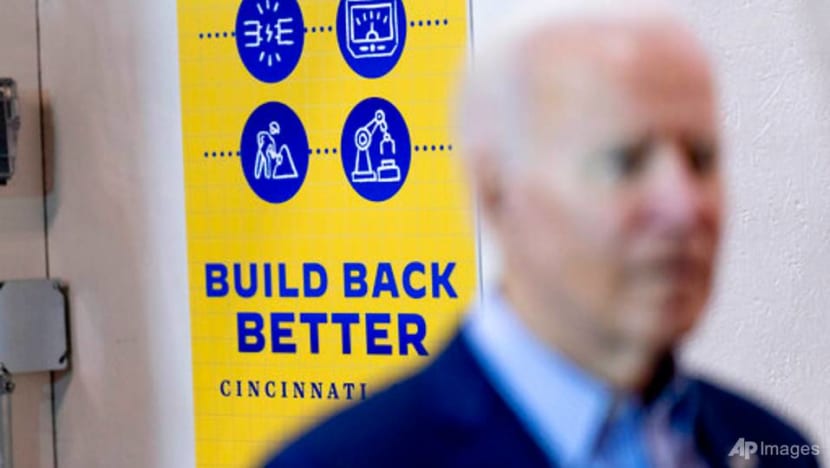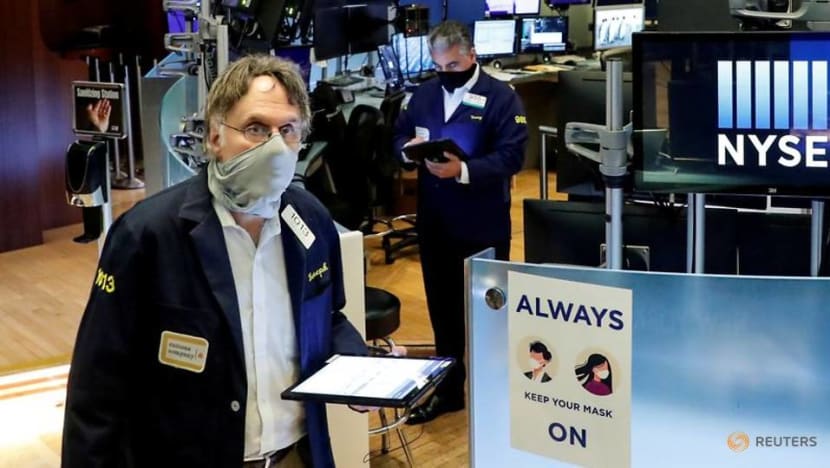Commentary: Things are falling apart for US President Joe Biden
Biden’s coming tribulations — the grinding to a halt of most of his reform bills, the stubbornness of COVID-19 and worries about the murder rate and border crossings — are largely out of his hands, says the Financial Times' Edward Luce.

President Joe Biden hands out pens after signing the VOCA Fix to Sustain the Crime Victims Fund Act of 2021, in the White House in Washington, Thursday, Jul 22, 2021. (Photo: AP/Andrew Harnik)
NEW YORK CITY: Joe Biden’s first six months have been dramatic. Two-thirds of Americans are at least partially vaccinated.
The economy is enjoying its fastest recovery since the 1980s. And, as polls show, the world no longer views America with the dread and pity it felt during the Donald Trump years. This has been the best presidential start in the lifetime of most Americans.
But in politics such runs are the exception. Biden’s coming tribulations — the grinding to a halt of most of his reform bills, the stubbornness of COVID-19 and worries about the murder rate and border crossings — are largely out of his hands.
A TOUGHER PHASE
It is easy to forget that Biden looked set to be a lame duck until Democrats won the Georgia special elections in January, giving them control of the Senate. Things could have been so much worse.
Yet Biden is now entering a much tougher phase of his presidency. One of his problems stems from an unforced error — the withdrawal from Afghanistan.
It is hard to understand why he felt the need to pull out America’s skeletal force of 2,500 troops before the 20th anniversary of 9/11. The costs of staying are minimal — there has not been a single US combat death in Afghanistan in the past 17 months.
READ: Commentary: As US withdraws, Russia confronts an awkward dilemma in Afghanistan
READ: Commentary: The US’ hasty exit from Afghanistan is a gift to the Taliban
By contrast, the risks of leaving Afghanistan are steep. It is only a matter of time before the Taliban regains control. The fall of Kabul would probably avoid scenes of Chinooks scurrying the last Americans out, as happened in Saigon in 1975. But it will nevertheless harm America’s prestige.
The signal of US risk aversion will muddy Biden’s hopes of winning hearts and minds in a contest with China. This setback is self-created.
READ: Commentary: Why the West has problems defining a clear China policy
NARROWING WINDOW
Biden’s window to enact his domestic agenda is narrowing. It is far better to have 50 Democrats in the Senate than 49.
But at least two of these, Joe Manchin of West Virginia and Kyrsten Sinema of Arizona, are fair-weather friends. Neither have any intention of scrapping the Senate filibuster rule, which forces Biden to seek at least 10 Republican votes.
This means that most of his bills, such as strengthening voting rights, amnesty for illegal immigrants and making it easier for unions to organise, have almost no chance of passing. Even one Republican vote would be a miracle.
It is possible he will get 10 Republicans to vote for his bipartisan infrastructure bill. But the cost of negotiating with them is mounting.
Having refused to consider any kind of tax increase to pay for the bill, Republicans have now torpedoed funding for the Internal Revenue Service, which has been badly depleted by cuts and personnel attrition over the past 15 years.

Biden could have used this moment to broadcast Republican cynicism about the rule of law. All he was asking for was the means to enforce existing tax laws.
Biden is so invested in his quest for a bipartisan moment that there are few concessions he will not make. Still, there is no assurance that he will get 10 Republican votes at the end of it.
The echoes of 2009, when Barack Obama wasted the summer meeting Republicans halfway in healthcare talks, only for them to unanimously reject the bill, are real. Biden has largely escaped the demonisation to which Obama was subjected, perhaps because he is white. But the Republican strategy of denying him any victories is unchanged.
READ: Commentary: What do building collapses in the US have to do with climate change? Plenty
A THIRD COVID WAVE
The story of COVID-19 is a microcosm of Biden’s presidency. In his opening period, he plucked the low-hanging fruit with a rapid mass vaccine rollout. Death rates plummeted as the number of daily shots exceeded 3 million.
What remains of the fruit — the tens of millions of Americans who are suspicious of the vaccine — is hard to reach.

Daily vaccinations have plummeted to just over 500,000 and infections are heading back up. Businesses and colleges are going through the same anxious cost-benefit analyses as they were a year ago.
Can Biden do anything about it? He could copy the UK’s Boris Johnson and effectively say to hell with the restrictions, or follow France’s Emmanuel Macron and adopt a more coercive vaccination policy. Neither step is fully within the power of a US president.
In practice, he will have to muddle through and hope that the third Covid wave is not strong enough to upset the economic recovery. As long as Biden has that, his presidency will stay on the rails.












